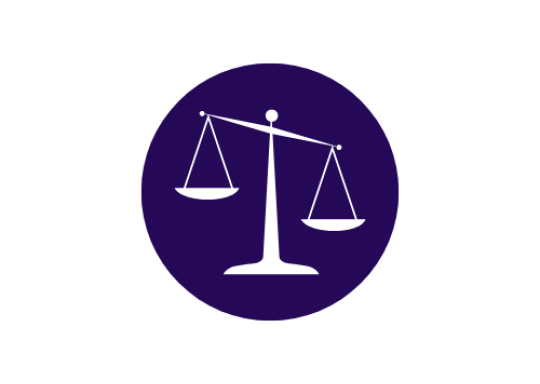Permitted work

This resource is about work you may do, including voluntary work, while claiming health or disability-related benefits.
If you are thinking of starting paid work of 16 hours or more a week, you should seek advice about benefit entitlement from an advice agency. You could ask for a ‘better-off’ calculation to find out if you will be financially better off in work.
Contents
Permitted work for employment and support allowance
Permitted work and housing benefit
Voluntary work and universal credit
Where can I get more help or information?

Want to donate?
These factsheets will always be free, so that everyone who needs them can access them, no matter what!
However, if you found them helpful and are able to, why not consider making a small suggested donation of £1 towards our work?
Disability benefits
Personal independence payment (PIP), adult disability payment, disability living allowance (DLA), Scottish adult DLA, attendance allowance and pension age disability payment are payable whether or not you are working. They are not means tested, so earnings do not affect the amount of your benefit.
Starting a job may suggest that your daily living, care or mobility needs have changed, so your benefit entitlement could be reconsidered. The Department for Work and Pensions (DWP) views starting or leaving work as a potential ‘change of circumstances’ for PIP and DLA.
Work and universal credit
There is no ‘permitted work’ (see below) for universal credit. Instead, you will be encouraged to do some work, even if only for a few hours a week, if you can manage it. There is no time limit to how many weeks you can work.
Some of your earnings may be disregarded by applying a ‘work allowance’. This will apply if you or your partner have a limited capability for work. This is determined by a work capability assessment.
The work allowance, whether you are a single claimant or claiming jointly with your partner, is:
- £411 a month (from 7 April 2025) if a housing costs amount is included in your universal credit award; and
- £684 a month (from 7 April 2025) in all other cases
Permitted work for employment and support allowance
If you are getting employment and support allowance (ESA) or national insurance (NI) credits paid because of your limited capability for work, you are allowed to do some ‘permitted work’. If the work is permitted, your ESA or NI credits will not be affected.
You have a choice of three types of permitted work, depending on your circumstances:
- permitted work lower limit;
- permitted work higher limit; and
- supported permitted work.
Permitted work can include paid employment or self-employment. There is no limit as to how long you can do permitted work for.
You must inform the DWP that you are due to start permitted work; call 0800 169 0310 or use form PW1.
If you are self employed, you will need to seek advice about how your earnings are calculated.
Permitted work lower limit
This allows you to earn up to £20 a week.
Permitted work higher limit
You can earn up to £195.50 a week (from 7 April 2025), after tax and national insurance deductions. The work must be for less than 16 hours a week.
Supported permitted work
This is work where you are supervised by someone who is employed by a public or local authority or community or voluntary group which provides or finds work for people with disabilities. It can also be work which is part of a treatment programme under medical supervision while you are an in-patient or regularly attending as an out-patient of a hospital or similar institution.
You can earn up to £195.50 a week (from 7 April 2025), after tax and national insurance deductions.
Permitted work and housing benefit
If you are getting ESA, any earnings from permitted work are disregarded in the housing benefit calculation. If you are getting income support, up to £20 of permitted work earnings may be disregarded.
Other allowed work
The following kinds of work are also allowed:
- care of a relative or domestic tasks carried out in your own home;
- work as a councillor. If you receive a councillor’s allowance that pays more than £195.50 a week (from 7 April 2025), excluding expenses, the excess will be deducted from your ‘new style’ or contributory ESA;
- any activity in an emergency to protect another person or to prevent serious damage to property or livestock;
- duties undertaken as an appeal tribunal disability member – one day a week is allowed (or two half days);
- self-employed work done whilst you are 'test trading' for up to 26 weeks with help from a self-employment provider arranged by the DWP;
- fostering a child or providing respite care to someone who is not normally a member of your household, if you receive payment from a health body, voluntary organisation or local authority (or from the person placed with you by the local authority);
- caring for a young person in Scotland who is provided with continuing care by a local authority that pays you for this;
- a DWP-approved unpaid work trial or work placement; and
- work which is so minimal that it can be regarded as trivial or negligible.
Voluntary Work
Voluntary work and universal credit
If you are working as a volunteer under universal credit, the time you spend doing voluntary work can reduce by half the number of hours that the DWP will require you to look for work. This doesn’t mean there’s a limit on how much voluntary work you can do. For example, if you are volunteering for 35 hours a week and you are required to look for work for 35 hours a week, this requirement can be reduced by half to 17.5 hours.
For more information on universal credit, see our universal credit guide.
Voluntary work and ESA
If you get ESA, you are allowed to do voluntary work for anyone other than a relative. A ‘relative’ is a parent (in-law or step-parent), son/daughter (in-law/step), brother, sister, or the partner of any of them; or a spouse or partner, grandparent, grandchild, uncle, aunt, nephew or niece.
You must not be paid for your work, other than reasonable expenses in connection with that work. Permitted expenses could include travel, meals, childminding, the costs of caring for a dependant, equipment needed for work and use of a telephone. There is no limit on the number of hours you can volunteer.
Where can I get more help or information?
This factsheet is a basic introduction to work for people who are sick or disabled. You can find out more detailed information in our Disability Rights Handbook.
This and all our other publications are available from our shop at https://shop.disabilityrightsuk.org
You can also place orders by contacting Disability Rights UK.
You can get help and information at your local advice centre, such as Citizens Advice. You can get more information about where to get personal advice from our Getting advice. All our factsheets are free to download.
You can view the current minimum wage rates at www.gov.uk/national-minimum-wage-rates.
You can find out more about volunteering at www.gov.uk/volunteering.




